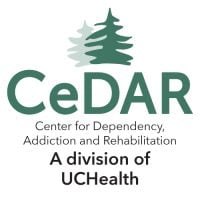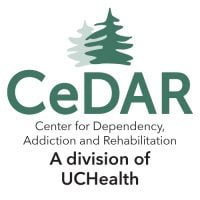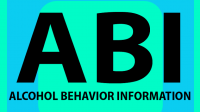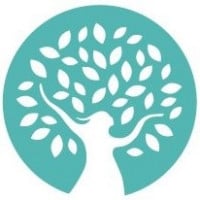Community Transitions Program
Drug Rehab Center in Aurora, Colorado
- Mental Health
- Dual Diagnosis
The Community Transitions Program in Aurora, Colorado offers evidence-based residential and outpatient treatment for individuals with addiction, with a focus on individualized treatment plans and wrap-around support services.
About Community Transitions Program in Colorado
The Community Transitions Program in Aurora, Colorado offers residential and outpatient treatment for individuals in all stages of addiction recovery. The experienced, multidisciplinary team at Community Transitions Program specializes in a variety of evidence-based approaches to substance abuse and addiction treatment, including cognitive behavior therapy, dialectical behavior therapy, trauma-informed care, and motivational interviewing. They provide individualized treatment plans for each patient and follow-up services to ensure patients receive the necessary care and support for the duration of their treatment and beyond.
Community Transitions Program offers a wide range of services to address a variety of needs related to addiction, including individual and group therapy, family counseling, wellness activities, healthcare/medication management, and more. They also provide support for co-occurring disorders such as anxiety and depression, as well as specialized programs for LGBTQ+ individuals and those affected by trauma. The team works with individuals to create treatment plans that are tailored to their individual needs and strengths, while providing a safe and supportive environment for recovery.
In addition to their comprehensive services, Community Transitions Program is accredited by the Joint Commission, the nation’s premier accreditation organization for medical and behavioral healthcare treatment. The program is also licensed by the State of Colorado and has received commendations from both the Colorado Department of Human Services and Mental Health America of Colorado. Community Transitions Program further sets itself apart with its unique wrap-around recovery services, which ensure that individuals are connected with resources in the community to aid in their recovery after discharge.
Genders
Ages
Modality
Additional
Conditions and Issues Treated
Dual Diagnosis treatment centers like Community Transitions Program provide this treatment tailored to the patient’s specific needs, and they also have a specialized focus on addiction treatment. Drug and alcohol addiction often coexists with another mental illness, such as depression or schizophrenia. In other words, drug addiction is only a symptom of a deeper problem.
When addiction enters into the picture, it can often lead to dangerous consequences in the addict’s life. For example, when addiction is paired with major depression, it can lead to suicidal thoughts or actions. When someone is addicted to drugs or alcohol, they often experience a failure to control their impulses and difficulty decision-making.
Dual diagnosis for drug addicts can be very effective when treating drug addiction in Aurora, CO.
Levels of Care Offered
This center offers a variety of custom treatment tailored to individual recovery. Currently available are Dual-Diagnosis, Outpatient, with additional therapies available as listed below.
Outpatient treatment programs are less intensive than an inpatient program. Participants live at home while working or going to school. Benefits include being able to continue relationships with family, friends, and work/studies. Treatment includes educating patient on addiction to drugs, medication, and counseling. Benefits include being able to continue relationships with family, friends, and work/studies. Treatment includes educating patient on addiction to drugs, medication, and counseling. Counseling sessions are for either individual or group.
Therapies & Programs
Individualized Treatment is essential because it gives addicts the ability to participate in a program that meets their unique needs. An addict should work with professionals who understand what they’re going through, especially if the addict is actively using.
Trying to find a treatment program that meets your needs can be challenging. It’s even more complicated if you don’t know what kind of treatment you need. Being able to have professionals who are experienced with treating your situation is key to getting sober. Finding the right treatment program for an addict is difficult, but it’s even harder without communicating with those who have experience treating your specific situation.
A person looking for drug recovery should know that group therapy is an essential tool. Group therapy provides accountability and friendship to people with addiction. It is recommended as a lifetime treatment habit. Group therapy occurs in a group setting as opposed to a one-on-one setting. It benefits patients by providing a feeling of support and letting them know they are not alone. Patients at Community Transitions Program also learn to build trust and understanding and gain perspective through discussions.
If you are looking for a drug addiction treatment program that also provides trauma therapy, then Community Transitions Program in Aurora, CO is a great option. The staff at this facility specialize in helping people process and understand the past traumas that have led them to addiction. This approach can help individuals move forward with their recovery and take a better hold of their sober future.
The benefits of trauma therapy at Community Transitions Program in Aurora, CO are as follows:
- People will become less likely to engage in self destructive behaviors.
- Their emotional and mental health will significantly improve.
- They will be more confident in their abilities to live an addiction-free life.
- People will be able to connect with other people on a deeper level.
- Their problems with intimacy and trust will improve.
Dialectical behavior therapy is a type of cognitive-behavioral therapy that focuses on eliminating specific negative thoughts that can potentially lead to an individual inflicting self-harm. It helps treat patients exhibiting uncontrollable emotions, intense mood swings, and borderline personality disorders.
The term “dialectic” means the integration of opposites. In the substance abuse context, dialectical behavior therapy refers to accepting the patient’s addiction and changing their thoughts and behavior. It improves life skills such as controlling intense emotions without reacting impulsively, resolving interpersonal conflicts effectively, and promoting awareness about self and others.
Cognitive behavioral therapy (CBT) is a type of psychotherapeutic treatment that is focused on changing negative ways of thinking that contribute to addictive behavior.
Cognitive behavioral therapy is beneficial for:
- People who are seeking to overcome addictive behavior
- Those who struggle with addictive behavior and mental illness
- People who have a genetic history of addiction in their family
- Those who don’t want to depend on medications
- Those who need a more practical treatment approach
Payment Options Accepted
For specific insurance or payment methods please contact us.
Is your insurance accepted?
Ask an expert, call (888) 674-0062
Additional Details
Specifics, location, and helpful extra information.
Aurora, Colorado 80011 Phone Number(303) 617-2800 Meta DetailsUpdated November 25, 2023
Staff Verified
Community Transitions Program Patient Reviews
There are no reviews yet. Be the first one to write one.
Aurora, Colorado Addiction Information
The Centennial State has slipped to a ranking of 12th in the country for drug abuse. Each year around 24% of the state's population uses illegal drugs while nearly 5% of its population abuses alcohol. Substance-related deaths in Colorado were responsible for 15.12% between 2008 and 2017. Fortunately, Colorado drug and alcohol addiction treatment are available to help a person overcome addiction.
The drug addiction problem in Aurora, CO is severe. The number of opioid-related deaths in the area quadrupled from 2013 to 2017. It's estimated that there are over 2,000 drug overdoses in Aurora each year. Many addiction treatment centers will offer a variety of therapies and treatments, such as group therapy, individual therapy, family therapy, medication-assisted treatment, and holistic therapies.
Treatment in Nearby Cities
- Delta, CO (187.7 mi.)
- Julesburg, CO (159.6 mi.)
- Rocky Ford, CO (130.5 mi.)
- Longmont, CO (33.5 mi.)
- Springfield, CO (200.1 mi.)
Centers near Community Transitions Program




The facility name, logo and brand are the property and registered trademarks of Community Transitions Program, and are being used for identification and informational purposes only. Use of these names, logos and brands shall not imply endorsement. RehabNow.org is not affiliated with or sponsored by Community Transitions Program.


